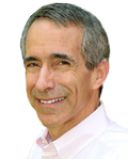
Aging
What's Wrong With Immortality?
The immortal quest for physical immortality
Posted May 21, 2015

Endless life – what people won’t do to achieve it. Over twenty two hundred years ago the great Qin Shuangdi, the Tiger of Qin, unifier of seven kingdoms into the first Chinese empire, tried mightily to extend his life. The alchemists' mercury pills did not work. Most historians suggest the attempt at immortality ended his reign, his life and his dynasty. Now Silicon Valley’s digerati, most prominently Paypal’s Peter Thiel, are doing what they can to live forever and forever – though some may settle for 150 years or so. The quest for extended life says much about human insatiability and technological hubris – but also makes us overlook what’s happening in our backyard: people are living a lot longer than they used to. Curiously, the reasons have little to do with technology, high or low.
Lessons from Japan
Japan is a proud outlier in human affairs. For two and half centuries it refused all but minimal contact with the outside world. When in the 1850s forced at gun point to join the “community of nations” Japan transformed from a feudal-medieval state to a world power in fifty years. Following the horrific violence it perpetrated in World War II and its own homeland’s wartime destruction, forty years later “the emerging Japanese superstate” was thought to threaten takeover of the American economy, symbolized by the purchase of Pebble Beach and the Empire State Building. Yet over the past quarter century Japanese stock and real estate markets have eroded while its economy went nowhere, providing a specter of deflation (prices going lower and lower and lower) that still spooks Central Banks the world over. Despite a heavy proportion of smokers – and a government tobacco monopoly – Japanese keep living longer and longer. Attempts to revive inflation – government debt is already 240% of GDP – have failed again and again. And now part of reason for Japan’s insistent deflation appears its increasingly long national lifespan. The number of long lived Japanese keeps rising faster than the government predicts (Economist, Free exchange, 5/9/15.)
Why are the Japanese stubbornly living so much longer than demographers expected? For the same reason lifespan expanded elsewhere – lifestyle. Worldwide populations have doubled their lifespans in the past century. The big factors remain nutrition, sanitation, education, vaccination. A life design of nutritional variety, regularity of daily pattern, social engagement and a modicum of physical activity have gotten most Japanese the expectation of living on average into their mid-80s. Nor is this result limited to Japan. Asian American women – primarily non-Japanese – have an expected lifespan of 95.6 years in New York’s Suffolk County, and in the nearly 49,000 strong in Bergen County, New Jersey hitting 91.1 years. This epidemiologic work by Professor Christopher Murray also demonstrates that women born in the U.S. outlive their foreign born mothers by five years.
When Social Security was established Americans survived on average near the “retirement age” of 65. Now American adults leave this life nearly 20 years later. Despite fritos, cheetohs, and a youth population more addicted to video games than exercise, our increasingly long lives may threaten to bankrupt retirement schemes and pensions from sea to shining sea.
Yet we would live even that much longer – and more healthily – by dong what much of the rest of the world does – eating a variety of whole foods, walking occasionally, and socially engaging our days in ways that fit the regular patterns of our brains and biological clocks. However, the digerati sensibly recognize this collective solution may not personally benefit them.
The Billionaire’s Lament
Chance rules life. You can be the vegan marathon running billionaire and still die from lymphoma at 41, or the Eubie Blake avatar who decides at 96 to go from two to three packs of cigarettes a day and lasts until 100. Lifestyle can put the odds in your favor - but they’re still odds. What works for the collective may do squat for the individual, and tech billionaires want sure things.
Here President Nixon’s “War on Cancer” proves instructive. Despite hundreds of billions of dollars, survival for most tumors is not much different than it was in 1970. Researchers recognize that “cancer” may represent six or ten or twelve different tumors within each one, that what appears the same malignancy under the microscope physiologically is many. People are slowly recognizing biological information is vastly more complex than they thought.
So is life on earth.
Human biological information systems link and work in ways that upend standard engineering visions of technological success. The “big data” that predicts what books you want to buy is far less successful figuring out the messiness of biology, with its multivalent enzymes, redundant and scientifically “crazy” workarounds, and endless adaptation and recreative creativity. Human complexity is more complex than our present models of complexity.
So far. It can be hoped that the billions of dollars billionaires will throw at attaining their own biological immortality will spawn more of the “disruptive” ideas they claim to adore – without leaving the rest of us bereft. Money can buy judges, politicians, governments and government policy. But if somebody privately discovers a truly effective and expensive anti-aging agent, money may not so easily purchase social peace.
Until that time the rest of us will be stuck with the dull activities – walking to work, talking to friends, cooking whole foods for the family – that collectively promise us years and years of happier, healthier lives. The human quest for immortality is old and potentially immortal. The best results may take a while.



